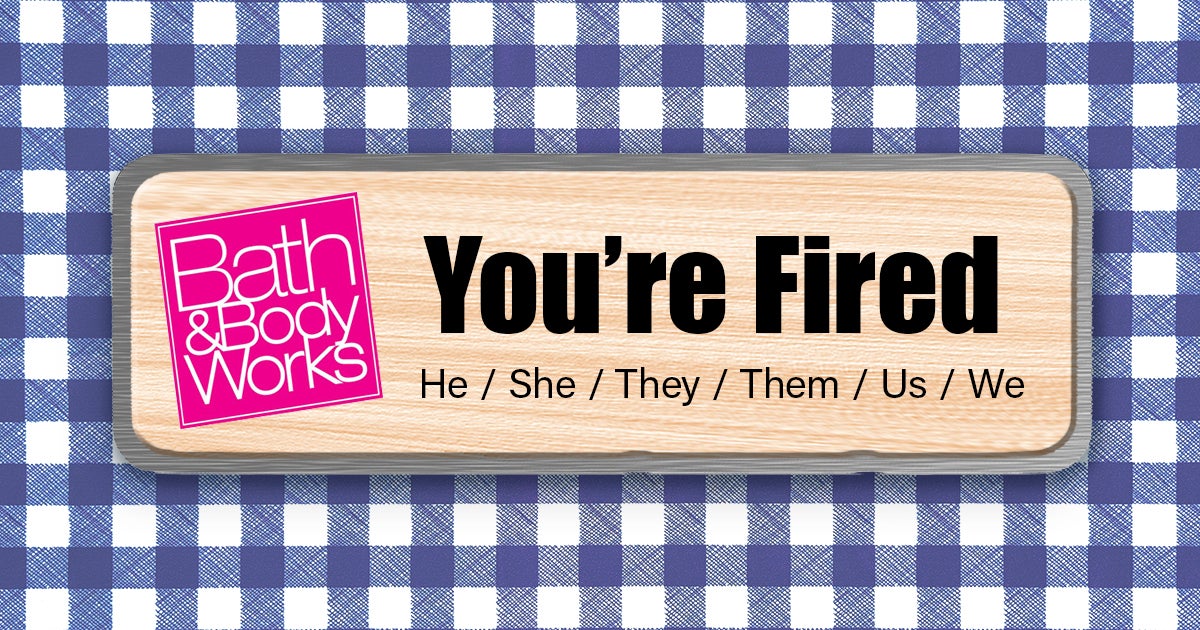
by Jayla Ward • 2 minutes
She was fired for saying “she.”
First Liberty filed a charge of discrimination with the U.S. Equal Employment Opportunity Commission (EEOC) against Bath & Body Works on behalf of our client Jocelyn Boden. The company fired her because she could not use pronouns in a way that violated her religious and moral beliefs.
Jocelyn was a store manager for three-and-a-half years in Utah. Earlier this year, she hired a new employee who identifies as transgender.
As a faithful member of the Church of Jesus Christ of Latter-Day Saints, Jocelyn’s religious convictions influence how she thinks about human nature, gender, sexuality and social issues. She believes God created humans as male and female, and that sex cannot be changed regardless of someone’s feelings or desires. Jocelyn had previously discussed her religious objections with her district manager.
Jocelyn and the new employee only worked together for one day. When Jocelyn declined to use male pronouns, a complaint was filed with human resources for “misgendering” the employee. She was accused of gender-identity discrimination and fired.
Jocelyn was willing to use any name or nickname. She just couldn’t use a pronoun that violated her religious beliefs.
“No one should be forced to choose between their job and their faith,” said Stephanie Taub, Senior Counsel for First Liberty. “Forcing employees to violate their conscience and religious convictions violates the federal Civil Rights Act.”
In Groff v. DeJoy—First Liberty’s Faithful Carrier case—the U.S. Supreme Court made clear that employers must accommodate religious beliefs unless they can show a substantial increased cost to the business. That precedent strengthened legal protections for people of faith at work by setting a very high bar for employers to deny a religious accommodation.
“Bath & Body Works could have easily worked with Jocelyn and offered an accommodation,” Taub added, “but instead they choose to violate federal and state law and fire her.”
What’s more, the EEOC recently issued two guidelines clarifying legal protections for Americans who encounter discrimination under the guise of “Diversity, Equity and Inclusion,” as was the case with Jocelyn. The EEOC made clear that there is no DEI exception to federal law, which mandates equal protection of all groups and individuals, including those with religious convictions.
“For religious Americans, this guidance signals a new receptivity within the Equal Employment Opportunity Commission to legitimate claims of religious discrimination,” Taub explained in an op-ed for The Hill.
Federal law protects Americans from being forced to affirm beliefs or ideas that violate their deeply held religious convictions.
People of faith have a right to live, work and do business in a manner that’s consistent with their beliefs. Forcing someone to choose between their faith and their livelihood makes a mockery of our laws that protect against religious discrimination at work.
Defending religious liberty in the marketplace is critical. Many employers continue defying the law and the Supreme Court by punishing, harassing, even firing workers over their religious beliefs.
Fighting these cases requires tremendous resources. Major corporations have millions of dollars at their disposal—and we need your ongoing support to successfully fight for Americans like Jocelyn. Join us in the fight to protect the right of Americans to live and work according to their beliefs without retaliation.